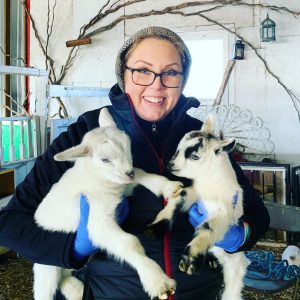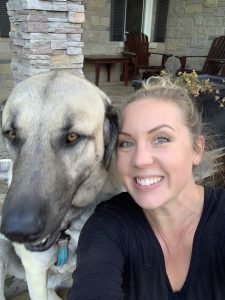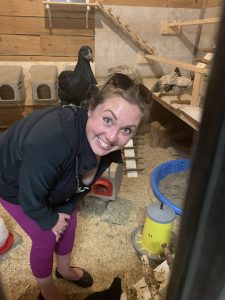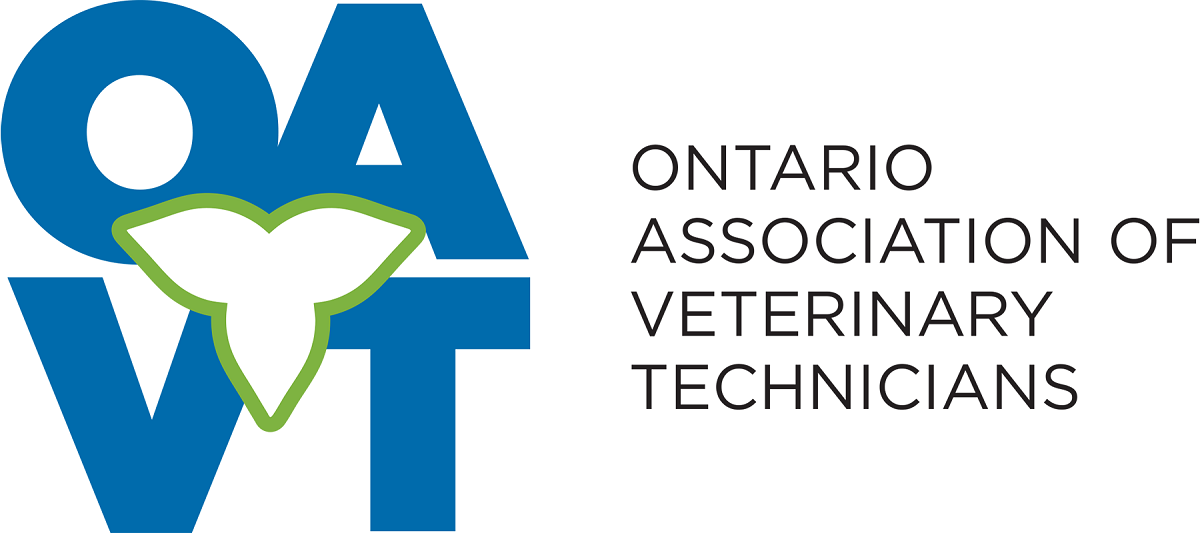Hailey Farkas, RVT
Where did you go to school and what made you decide to take a Veterinary Technology program?
While I went to the University of Guelph (BScAg) before I made my move into a veterinary technology program, becoming an RVT was always in the back of my mind. I started working at a small animal and exotic veterinary practice when I was in grade 9, LONG before I was thinking about post-secondary education. When I was in grade 12, I really wanted to go into a vet tech program, but there was a push from my family to go to university. After two and a half years at Guelph (where I was miserable), I left, took the rest of the year off, and applied to Seneca College. I graduated from Seneca’s Veterinary Technician program in 2011.
What is your current job(s)? When did you start it? Are your primary responsibilities?
That is a tough question, as I have a lot of things on the go! I started working at Seneca College in the Veterinary Technician and Veterinary Assistant programs in January of 2020, and facilitate labs in large animal medicine, small animal restraint and nursing techniques, radiology, and surgery. I have also taught clinical pathology and advanced clinical pathology.
Along with my role at the college, I am on the Board of Directors for the OAVT, after being elected this past February, and our national association, the RVTTC. In addition to this, I also work at a very busy small and exotic animal practice in Stayner.
Over the last several years, I have also volunteered in various capacities. I have been on the Speaker Planning Committee for the OAVT annual conference for the past 3 years and have been responsible for the RVT Health and Wellness, and the Large Animal, Equine and Food Production tracks. Before I started working at Seneca College, I also led a live disbudding session for the second-year, large animal students.
COVID-19 has amplified stress and uncertainty in everyone’s lives. Do you find that you are incorporating this into conversations with students? And if so – what specific tools are you focussing on when helping them prepare for the stresses of an RVT career?
COVID-19 has affected all areas of our industry and everyone within it in different ways. As a professor and technologist at Seneca College through the pandemic, course delivery was affected, with all lectures being online, and in-person labs being physically distanced with reduced class sizes, and an every-other-week model, up until this Fall semester. This, of course, has greatly impacted the student learning process and experience.
While my role as an RVT at a small and exotic animal practice has come much later in the pandemic than many others, it has changed how we operate and practice daily, with curbside and telehealth. Many practices, and the one I am at is no exception, have seen a boom in new clients, with people being home more, and consequently adopting and bringing home new pets. Couple this with no clients in the building, client financial constrains due to lost jobs, staff shortages, overbooking of appointments, and rising frustrations about lockdowns/restrictions, and you have the perfect recipe for compassion fatigue and burnout.
My advice, whether it be to students, clients or fellow RVTs and DVMs, is to make sure you take the time to reflect on your own mental wellbeing. Our profession can take an emotional toll without the added pressures of a pandemic! I have struggled immensely with anxiety, depression, self-harm, and dark thoughts, which I eventually, through trial and error, found my way through. After the unexpected death of a DVM friend and colleague in August of 2020, I decided that we really needed to open this conversation and have a really hard look at how we approach the darker side of our profession and get real about our approach. The live Mental Health Fireside Chat in January 2021 was a result of that conversation. During the session, the overarching message delivered, was “you are not alone”! You are not alone in your feelings, your struggles, your thoughts, or your challenges. There is a support system around you, and there are people that care. Whether it be a friend, a colleague, a mental health professional, or the OAVT MAP program, reach out and connect. We cannot help our patients, if we ourselves, are unwell.
It’s November – the month following a National celebration of RVTs. If you could encourage other RVTs to focus on ONE thing about the profession to celebrate, what would it be?
Celebrate yourself, and your role, and what it means to be an RVT! Every single day, there are a multitude of roles and job descriptions an RVT fills; do not forget the value you bring to the table! We are superheroes, don’t forget it! 😉
What other jobs have you had in the RVT field? / What made you want to pursue this position?
Other than working in research, I have worked in almost all practice areas as an RVT. I have an extensive background in large animal, equine and food production medicine, and have worked with beef and dairy producers for a number of years. I have also worked in small and exotic animal medicine, as well as wildlife rehabilitation and education. While I am registered in Ontario now, the first 5 years of my being an RVT were in Manitoba!
While my decision to leave the large animal practice I was working at was NOT an easy one, my move to Seneca College was an incredible career opportunity. Being able to bring my years of varied experience into an educational setting, where I could assist others on their journey into this profession and provide the students with not only their key learning objectives and outcomes, but also give them a practical guide to what they will experience upon graduation once they start working in a clinical setting. There are not many large animal RVTs, never mind RVTs who focus on cattle and food production work. When I graduated and started working in large animal medicine, I felt like I was trying to play “catch up” and did not feel prepared for my new life as a bovine RVT. The profession is ever-changing, and with that, the need for competent, confident, capable large animal RVTs is huge! In my leaving that practice, my desire was to help spark a passion in future RVTs looking to move into large animal and food production medicine and provide them with the tools they will need to be successful!
Tell us about your career path and how one role helped open doors for another role. Was it scary making a change? What advice can you give other RVTs who may “want a change” and they just don’t know how to turn it into a reality?
I would be lying if I said that it was not scary when I moved to Winnipeg, or when I left the large animal practice to make a change to Seneca College, or a million other changes I have made in the last 18 years of working in veterinary medicine! There is opportunity all around us all the time – we just must open ourselves up to it. Go to conferences, CE events, network with company representatives, other practices, DVMs, specialists, RVTs working in your preferred practice area, etc. Honestly, just get out there, meet new people, ask questions, and build relationships. This industry is a lot smaller than you think it is, and the connections you make now will impact you down the road. Relationships I made 12-15 years ago have contributed to the career I have today.
What are your goals as an RVT? Not just your immediate goals, but long-term goals.
My goals as an RVT are less about MY role, and more about what I can contribute to the future of our profession, which is why I decided to get involved with the OAVT and RVTTC Board of Directors.
My long-term vision for our profession is that being an RVT is a fulfilling lifelong career (not 3-5 years), free of staggering levels of burnout and mental health crises! A profession where RVTs feel supported, heard, and respected as the competent, knowledgeable, and integral health care workers that they are! A profession where RVTs are paid a fair, and livable wage, where there is room for career advancement and new opportunity. And a profession where the RVT scope of practice is protected, and our “R” bear’s weight and is recognized!
RVTs are passionate people, and every RVT has an area they are most passionate about (nutrition, research, spay/neuter, dog bite prevention, education, etc.). What is YOUR passion?
Having grown up on a dairy farm in Southeastern Ontario, and subsequently working in large animal and food production medicine, I have always, and will always, LOVE agriculture and bovine medicine, particularly reproduction and ruminant behaviour. I also have a passion for education, which is evident in my current role at Seneca College, and my taking a leading role in client education in practice.
I also have a web project that I have been working on, which is designed as a comprehensive resource for RVTs in Canada, and is aimed at supporting, training, and educating existing RVTs and those looking to become RVTs! Stay tuned!




